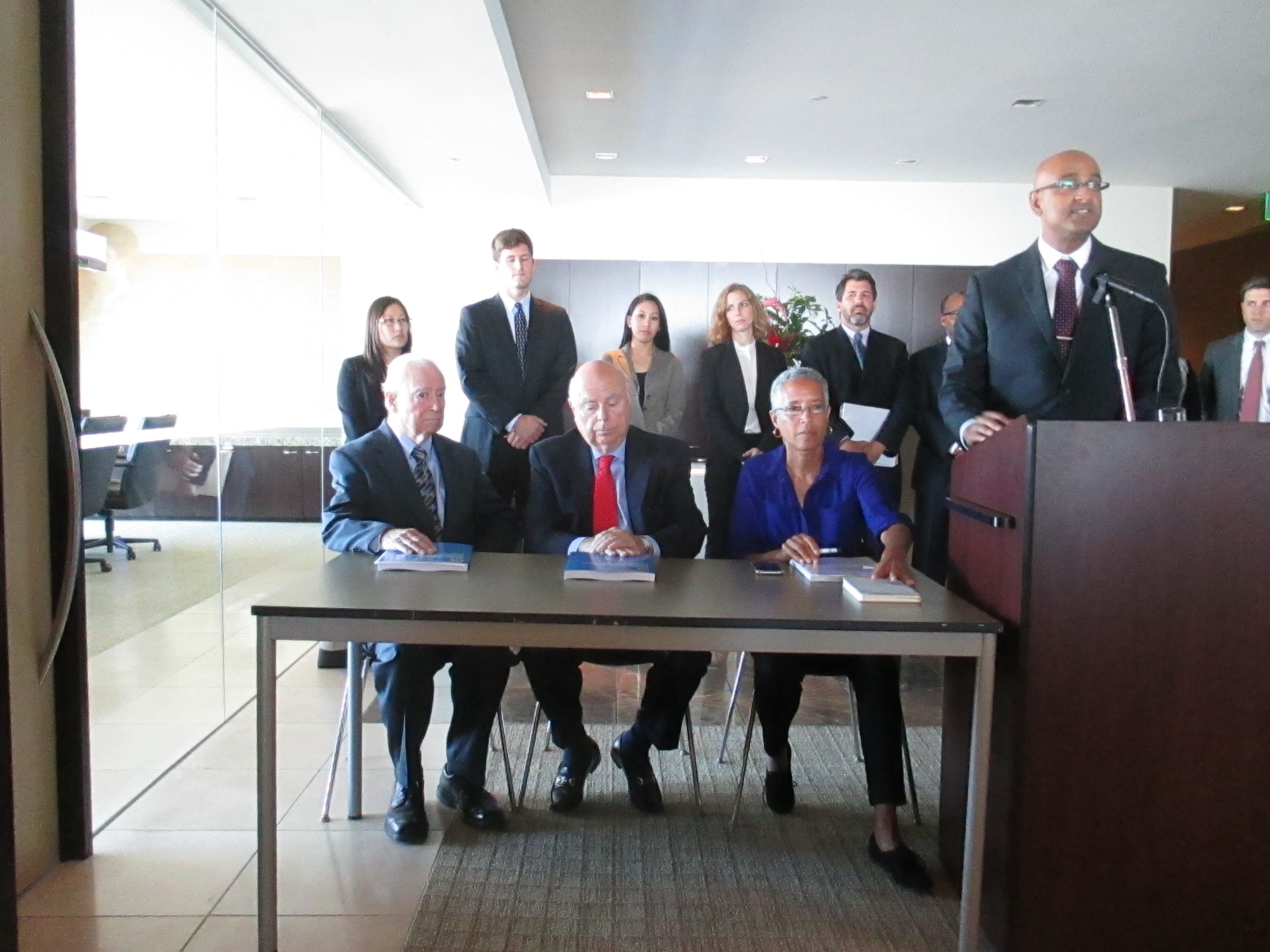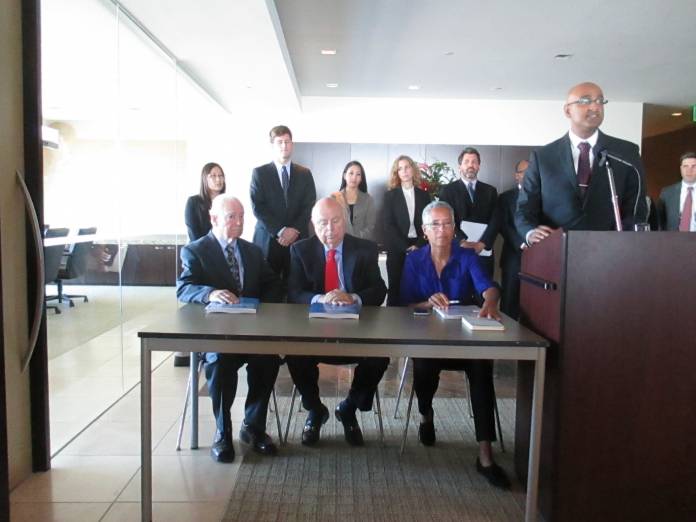The final report of the Blue-Ribbon Task Force investigating the San Francisco Police Department came out today, and while much of it is not surprising, it’s still devastating.
In particular, the report concludes that the San Francisco Police Officers Association has far too much clout in the department, impedes reforms, interferes with misconduct investigations, and helps create a “good old boys club” that at the very least tolerates serious racial bias, gender bias, and homophobia.

The report also suggests strongly that the department needs an outside agency auditing it – and while the panel suggests the creation of an inspector general, the conclusion could also support the creation of a public advocate, who would have the ability to monitor, audit, and report on the department.
The report is highly detailed, and runs 239 pages. You can download a copy here. It concludes that bias is deep, perhaps systemic in the department, that Black and Latino people are searched without cause far more often than White people, and that promotions are based more on personal connections than qualifications.
The department general orders, the panel says, are way out of date, that use of force policies need a complete overhaul. Transparency is utterly lacking; some data can’t even be complied because it’s only kept on paper cards that are never entered into a database.
“Data is rarely analyzed, and reforms are rarely implemented,” the panel’s executive director, Anand Subramanian, said.
There are 72 findings and 86 recommendations. Many of the suggestions are process or administration changes that could take place right away. Others, the panel admits, will take years.
Panel member LaDoris Cordell, a retired Superior Court judge who was also the civilian oversight director for the San Jose Police Department, delivered a brutal, harsh rebuke to the POA and the senior department staff who too often follow its wishes.
“The SFPD is, for all practical purposes, run by the POA,” she told a press conference today. “The POA leadership sets the tone, and historically, it’s an ugly one.”
She described how hard it was for the panel to find cops who wanted to talk. The POA “intimidated officers who wanted to talk to us,” she said. “The officers were told they had to go through the POA.”
In fact, the report consistently describes two visions of the department: One that comes from officers who were suggested and provided by the POA, who spoke with a POA lawyer at their sides, and who said that the department had no culture of bias or insensitivity – and a very different one that came from officers who agreed to testify only confidentially because of their fear of reprisal.
The officers who were not sent and approved by the POA described a demoralizing climate of racism, sexism, and homophobia perpetrated by a culture that promotes insiders who play the game and isolates reformers:
Several current officers said they feared retaliation for speaking with the Panel—or generally speaking out publicly about the department—in the form of damage to their professional reputations and/or careers (including being precluded from promotions). Another witness who spoke on condition of anonymity stated that if officers stepped out of line, they faced retaliation. She gave the example of field training officers assigned to train the children of a Chief or Deputy Chief facing the threat of retaliation if the training officers failed the trainees.
At least two current officers expressed a fear for the physical safety of themselves and their families, specifically related to their fellow officers potentially not “having their back” during dangerous situations in the field if they spoke out against the department.
District Attorney George Gascon, a former police chief, had harsh words both for the POA and for the Police Commission:
District Attorney Gascón testified to the Panel that the POA was very strong and held too much control over the SFPD. In his opinion, the POA was heavily involved in local politics, very well-funded, had money to help get politicians elected, and its endorsement was highly coveted. As a result, he believed the POA had more political power than its equivalents in other metropolitan areas. DA Gascón further stated his view that some Police Commissioners were “legacy people” who were close to the department and the POA—especially those appointed by the Mayor.
A high-level confidential witness characterized the POA as a “bullying organization” and “frat house.”
More:
Witnesses inside and outside the SFPD, including one very high-level confidential witness, stated that although the department was diverse in some ways, the culture was dominated by an insular “good old boys’ club” that originated in certain high schools in the city, in particular St. Ignatius, Sacred Heart, and Riordan. In some cases, the network reached further back to elementary school and youth sports leagues. Some witnesses stated that officers who did not attend St. Ignatius high school could not reach the inner circles of power in the department.
The POA immediately sent out a press release calling the panel’s work “divisive” and dismissing it as a “kangaroo court.”

The panel found that the disciplinary process at the department is badly broken, and that officers rarely receive effective discipline for conduct violations. The Office of Citizen Complaints is understaffed, everyone agrees – but there’s a clear perception that most complaints are too easily dismissed and serious incidents are resolved with little consequences for the officers:
It also bears special emphasis that neither the Chief nor the Director of the OCC has sent a discipline case that originated from a citizen’s complaint to the Police Commission since 2012. All of the disciplinary cases that have been sent to the Police Commission from 2013 through 2015 originated in IAD. During this same period, only nine OCC complaints have resulted in a suspension by the Chief, and all such suspensions were for 10 days or fewer. That means that of the more than 1,920 OCC complaints closed and 147 OCC complaints where discipline was imposed over this time period, none were determined by the Chief or the OCC Director to raise issues that warranted serious discipline. While each individual case is unique and it is possible that there are reasonable explanations for why no OCC case has been referred to the Commission between 2012 and 2015, these statistics are troubling and raise questions about whether officers are being held accountable to the citizens they serve.
That’s a kind way of putting it.
The report demonstrates why deep, systematic reform is needed in the department – and at the Police Commission, where the mayor’s appointees at the very least enabled this crisis to happen.
Cruz Reyonoso, a former state Supreme Court justice and a panel member, told reporters that the necessary changes won’t come from within the department. “The Board of Supervisors and the mayor need to be bound by [the need for a change],” he said. “I’m not sure it will happen unless the citizens insist that it happens.”
When I asked Reynoso if he and the other panelists supported the proposal by Sup. John Avalos to put some of the police budget on reserve, pending clear and demonstrable changes, he demurred and said that the department needs its resources.
Yes, it does – but you have to wonder what it will take to change what is clearly a deep-seated toxic culture that has resisted every effort at reform for decades.
One reporter asked if the problems at the department were the result of a few bad apples or the entire orchard. Subramanium acknowledged that there are problems throughout the orchard.
The POA leadership is an example. It’s a labor union, and the member elect the leaders. If the majority of the officers don’t want to see obstacles to reform, why do they keep electing leaders who are, by all accounts, obstacles to reform?





